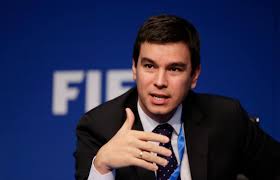October 15 – FIFA has said that it will open dialogue with stakeholders an article 17 of its Regulations on the Status and Transfer of Players (RSTP) following the European Court of Justice (ECJ) ruling in the Lassana Diarra case that found of its transfer rules are contrary to EU law.
FIFA is to formally invite “comment on and propose ideas” on the article that covers ‘Consequences of terminating a contract without just cause’, with the aim of consolidating the proposals and “identifying the best way forward”.
The ECJ ruled on a long-running dispute between former French international midfielder Diarra and FIFA over what happens when players unilaterally terminate their contract, with judges finding that by restricting a footballer’s ability to seek further employment, current FIFA rules hinder the EU’s free movement and competition between clubs.
Described as potentially being a Bosman Mark 2 by some experts, the fear for clubs now is that the Diarra case will encourage more players to attempt to break their contracts and join another team without a transfer fee having to be negotiated, hence changing the face of the European transfer market – just as the Bosman case did in the mid-1990s.
The Bosman judgement allowed players to move to another club at the end of their contract without any monies being exchanged – but this potentially goes much further.
See ECJ ruling on Diarra case threatens stability of transfer market
Having said they will take time to review the ruling, FIFA has reacted swiftly to convene stakeholder opinion, something that it has been heavily criticised for not doing in other areas – like player workload issues and the introduction of new competitions that yesterday sparked the filing of another case against FIFA in Europe.
FIFA chief legal & compliance officer Emilio García Silvero (pictured) said: “FIFA looks forward to developing its regulatory framework further, obviously taking into account views and input from all relevant and affected parties. FIFA sees the Diarra decision as an opportunity to keep modernising its regulatory framework.”
Following the ECJ ruling, legal opinion across Europe variously argued that it undermined much of the economic logic behind the transfer market. The ruling opens a pathway for more attempts by players to break contracts ‘without just cause’ in order to achieve a move. It will likely lead to more disputes as players pressure clubs to allow that move at, most likely, a lower price than would have been achieved.
FIFA said that the “ruling only puts in question two paragraphs of two articles of the RTSP”, the problem is that they are a pretty significant two paragraphs in the rules.
However, Garcia Silvero points out that the RTSP regulations were agreed with the European Commission “back in 2001 following a dialogue including footballing stakeholders that lasted approximately three years. The ruling in the (Lassana)Diarra case, issued over 20 years later, means that some of the elements of the settlementagreement with the European Commission will now have to be revisited in order to bring the FIFA RSTP into line with European law, as that law has now been interpreted by the European Court of Justice.”
But he also makes the point that the Diarra ruling doesn’t end the transfer system as it exists and that it also “confirms the sanctity of contracts. Nobody, neither a club nor a player, can simply walk away from a valid contract.” That sanctity is needs regulation and Garcia Silvero says the Diarra case “it leaves no doubt that such regulatory mechanisms may be applied”.
As regards the rest of the transfer system, he says it is still fit for purpose. He pointed out: “…rules concerning registration periods; the transfer and registration of players; the application of sporting sanctions in certain cases; training compensations and solidarity mechanisms to reward training clubs; the international transfer of minors; the dispute resolution system to protect players and clubs alike in case of a breach of contract anywhere around the world; the protection of female players, coaches, national teams and much more. All these vital elements are basically unaffected by the Diarra ruling.”
Contact the writer of this story at moc.l1744810092labto1744810092ofdlr1744810092owedi1744810092sni@n1744810092osloh1744810092cin.l1744810092uap1744810092

